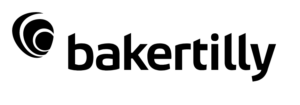
Opinions expressed in AGB blogs are those of the authors and not necessarily those of the institutions that employ them or of AGB.
Declining enrollment. Reduced government funding. Dependency on tuition. Overburdened cost structures. Aging facilities and increasing maintenance costs. Rising salary and benefit expenses. Do any of these challenges ring true for your institution? Perhaps you, like other institutional leaders across the nation, are finding yourself wondering how your institution will remain financially sustainable for years to come.
A survey conducted by Inside Higher Ed found that most college and university presidents are confident their institution will be financially stable over the next five to ten years.i In a separate Inside Higher Ed survey of business officers conducted three months later, most agreed with the presidents’ outlooks for the next five to ten years, but only about half expect to be better off next year than they are now. Those business officers who indicated they expect their institution to be more financially stable next year than this year reported an expectation that enrollment, and thus net tuition, will be higher and plan to cut their budget in response to economic conditions.ii
How realistic is that scenario? At the simplest level, business principles tell us that to improve our financial position, we have two options: decrease costs or increase revenue. However, we can only cut so much before there is nothing left to cut. Expecting enrollment revenue to increase may be counterintuitive, given projections that the number of 18-year-olds, the traditional first-year college enrollees, will decrease by 15 percent.iii
Perhaps the answer to many of our challenges lies within the expression “work smarter, not harder.” This is not to imply that generating and implementing solutions does not involve hard work. Difficult decisions are most certainly involved, but we can strategically leverage the resources already available to navigate our path forward.
Institutions have access to data like never before. These data can help to analyze the current state, evaluate possible solutions, and measure the success of transformative initiatives. The information can even inform an exit strategy in case the need arises to abandon an approach that is not working.
How internal audit can support higher education’s fiscal sustainability journey
Internal audit can provide the independent and objective perspective necessary to analyze the data available, assess a broad range of strategic risks, and help the board better oversee efforts to drive fiscal sustainability and success.
Internal audit can conduct reviews targeted at key operational risks that could inhibit or advance strategic objectives. It can also help provide trustees with insight into the following topics:
- Data governance—What frameworks and expectations are in place to ensure we are assessing the right information at the right time? And how do we manage data across departments, colleges, and campuses to ensure we start the conversation in the right place?
- Academic program framework—Do the institution’s academic program offerings make sense for today’s students and specifically, are they aligned to the students we plan to serve in a way that aligns with our strategic plan? Which programs drive the most tuition revenue, are most expensive to operate, and have the greatest profit margins? What are the accreditation implications for adding, removing, or changing existing courses, degrees, and/or certificate programs?
- Alternative revenue streams—What does our current revenue model look like? How dependent are we on student tuition? How reliable are our other revenue sources (e.g., charitable giving, auxiliary enterprises, sponsored research, investment portfolios, etc.)?
- Environmental, social, and governance (ESG) and Inflation Reduction Act (IRA) analysis—Are we thinking clearly from an enterprise level about how all actions support our strategic priorities and whether we are maximizing our opportunities elated to accessing tax credits and other financial incentives for investing in renewable energy projects?
- Resource optimization and operational efficiency—Are there opportunities for shared services or outsourcing activities that could provide cost savings while also enhancing efficiencies or operational coverage? Do we have processes and frameworks in place to ensure these relationships result in intended outcomes? Where are opportunities to leverage technology to create economies of scale?
Baker Tilly Can Help
Our higher education internal audit specialists can help college and university boards and cabinets conduct a risk assessment to evaluate the current condition of your institution’s fiscal sustainability outlook. We assist in identifying opportunities for improvement, delivering recommendations, and serving as a co-sourced or outsourced internal auditor.
With Thanks to AGB Mission Partner: Baker Tilly



